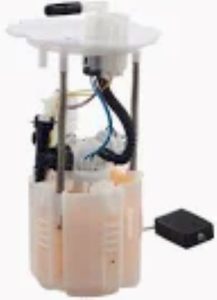Performing at higher levels, these fuel pumps are designed to flow more efficiently and with greater consistency than standard high-flow units. In most cases, these pumps will be able to handle the higher pressures and flow rates that are necessary in a high-performance or racing car. Where standard fuel pumps run at between 30 and 50psi, high-performance units can typically range of TGO63 to over100 psi.
The pumps used can run at fast flow rates: 400 liters of petrol are sucked back into the tank per hour, so they work well in motorsport but too using energy pumping around between100 and 150 litres an a regular pump. That extra flow is a key component to providing high-horsepower engines with the fuel they require in order for them to perform properly and efficiently.
Generally, a high-performance fuel pump will have at least one strong motor and powerful impeller or rotor. These parts are meant to endure the higher pressures and flows that came along with an upgraded turbo. As an example, high-performance pumps use advanced materials such as carbon composites to provide improved flow characteristics for long-term durability and efficiency.
Some reputable manufacturers of high-quality fuel pumps are Bosch and Walbro, among others; these organisations have been providing prestigious fuel pumps for both professional motorsports as well as sophisticated automotive machinery. For instance, the Bosch 044 fuel pump is a popular selection and it can deliver as much as 300 liters per hour at 72 psi.

Not properly installing and maintaining the high-performance fuel pumps mean less life or even completely useless to them. It is important to keep an eye on debris in the fuel system and as getting it properly mounted will be another way of preventing failures. In addition, many high-performance pumps include cleanable filters to shield them from particulates that represent one of the most common agent causes of pump failure.
So, it's well recommended by most car enthusiasts and professionals that when making serious work to an engine like adding turbochargers or supercharges you must upgrade the fuel pump with a high-performance one. The reason behind this is that the more power a car puts out though mods, then usually in return it needs to suck up more fuel than what comes from an OEM pump.
A High-Performance Fuel Pump Is an Upgrade, But Also a Prerequisite for Proper Engine Safety in Demand-Full Scenarios To learn more about high performance fuel pumps, check out Fuel Pump.